It might not look like much, but it feels really emotional to hold it. I'll try to explain why.
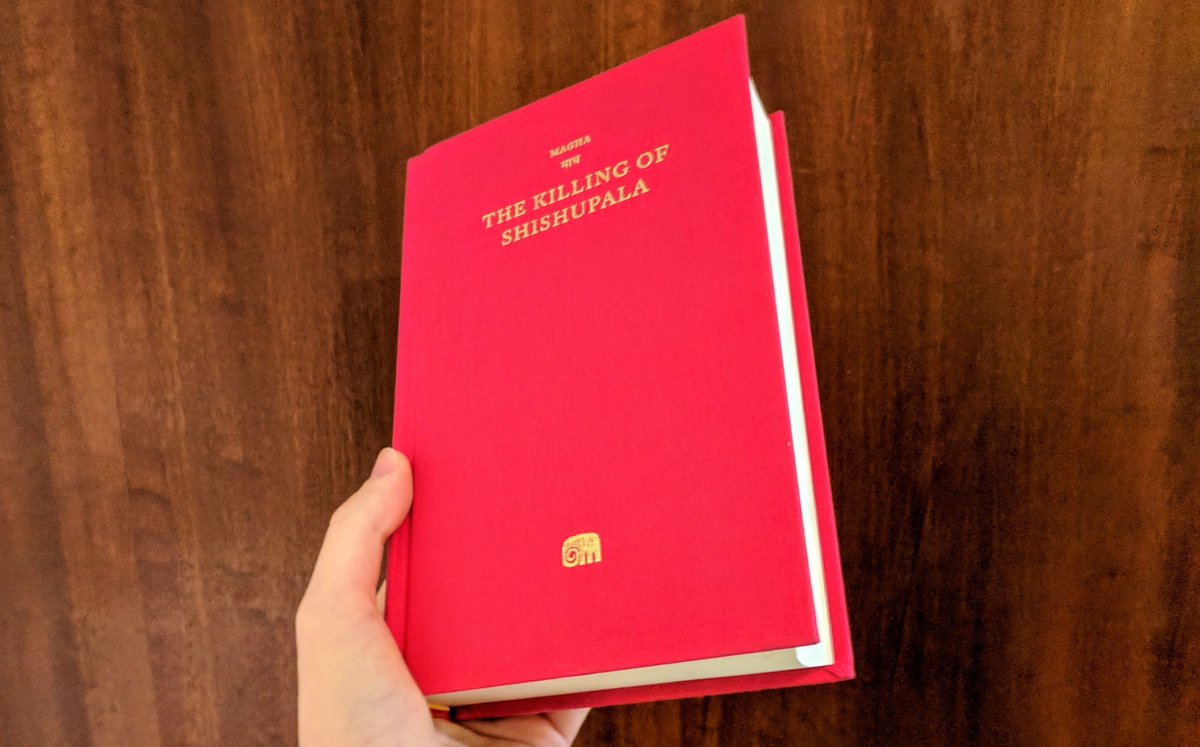
It tells the story of one episode of the Mahabharata, a poem of 1.8 million words. That's more than twice the length of the Bible or Shakespeare's complete works
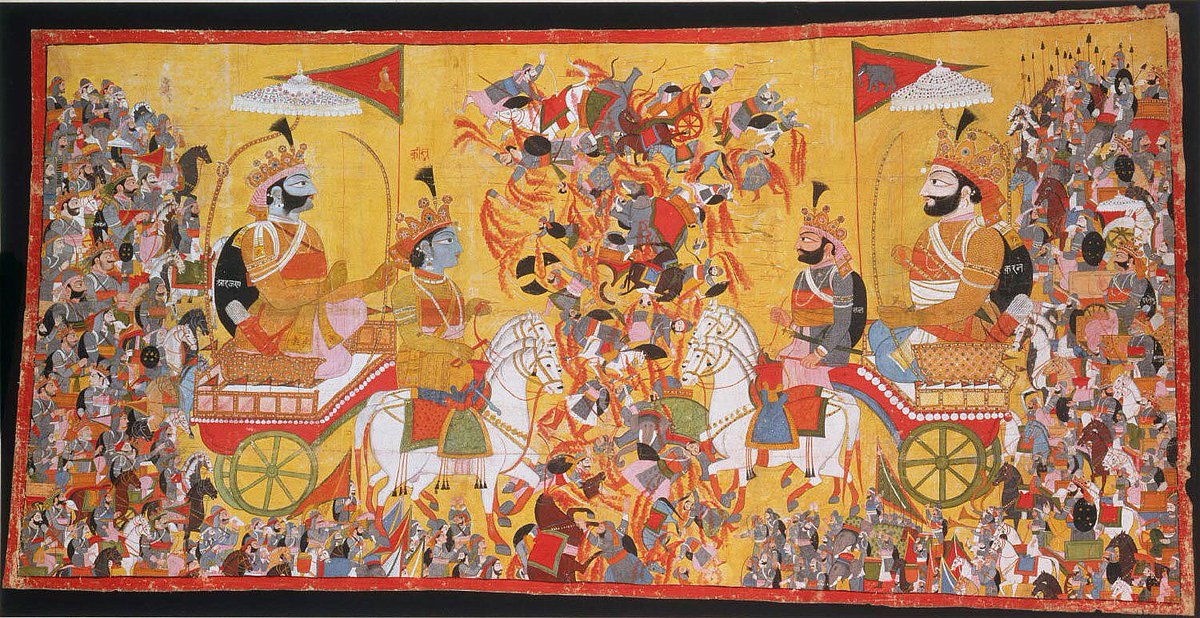
Krishna learns at the beginning of the poem that his great enemy from another life, a demon, has been reborn in the form of the evil King Shishupala.
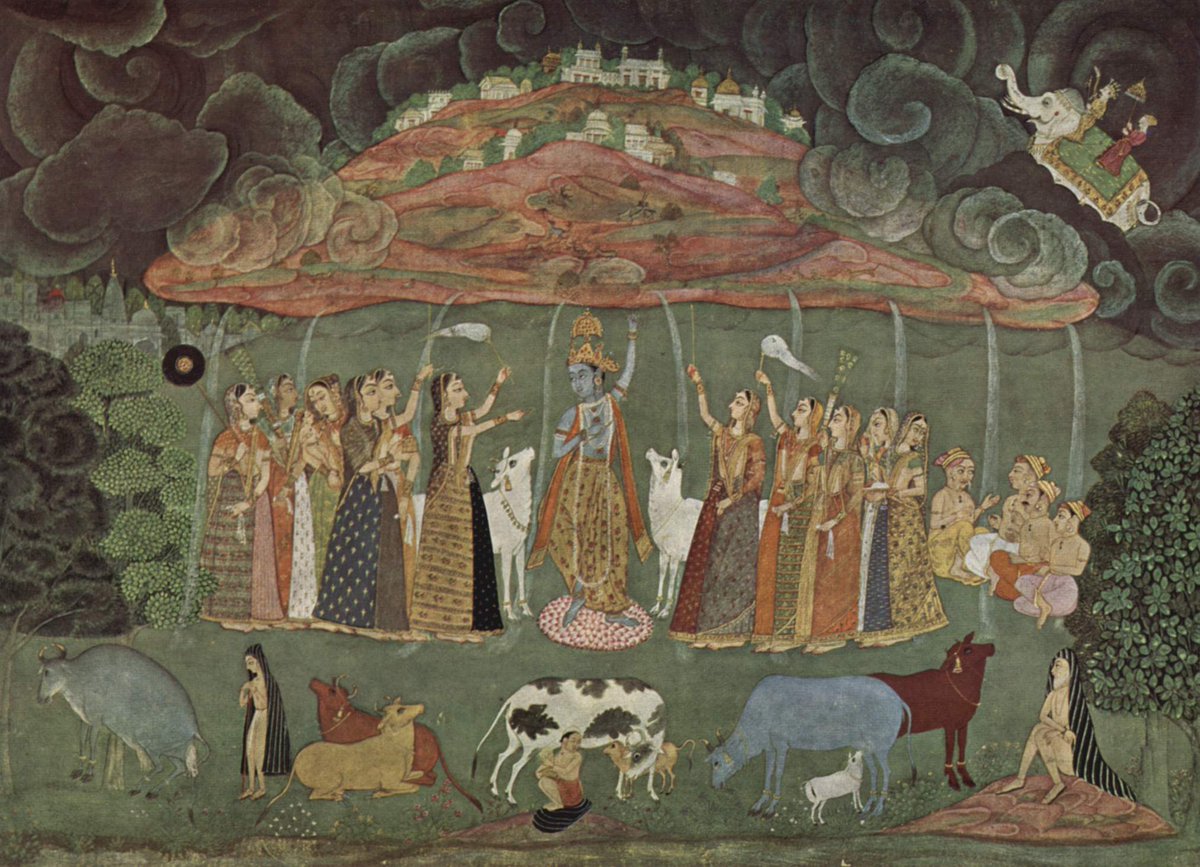
In the Mahabharata, this happens at a feast.
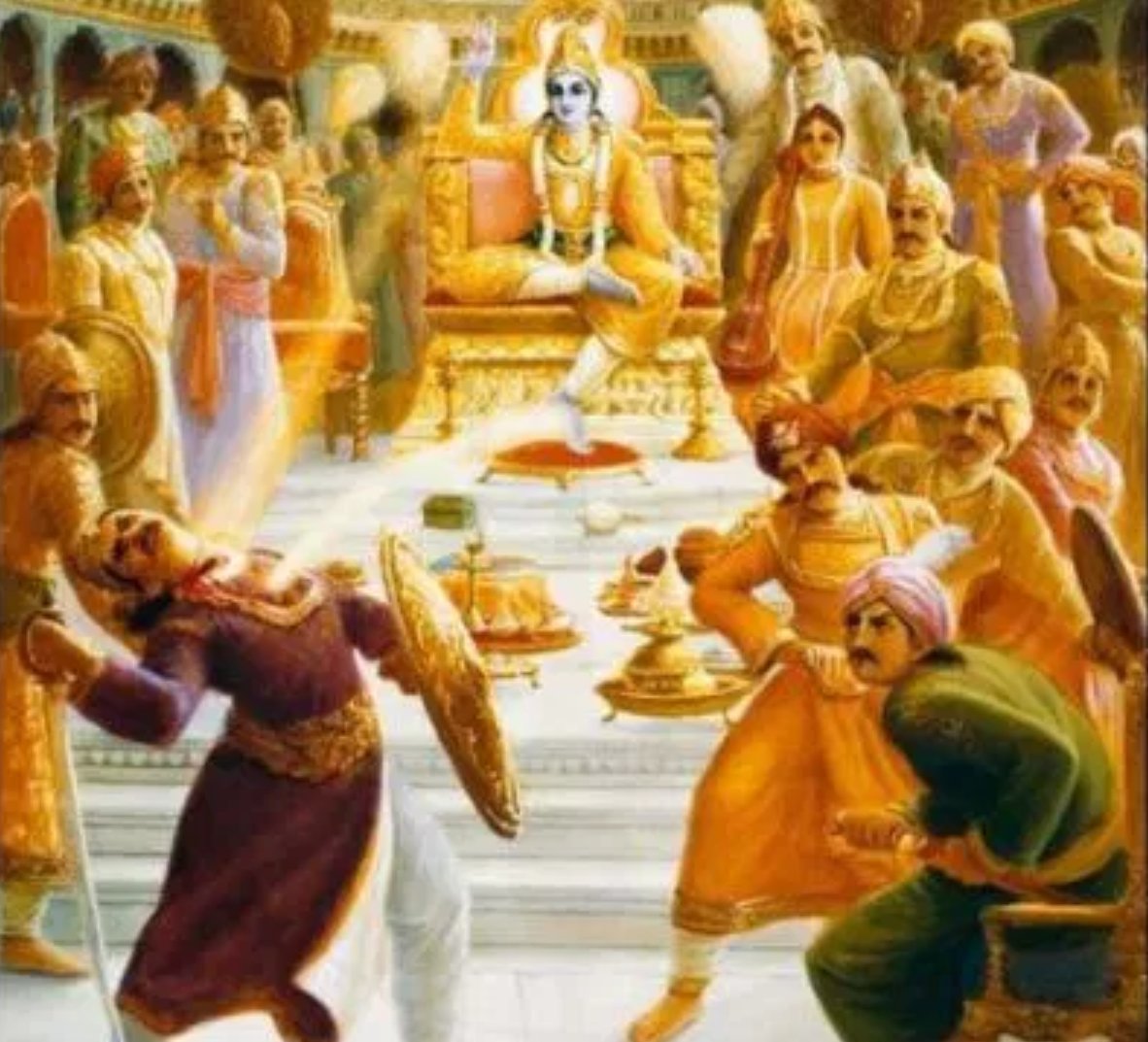
However, Shishupala grows up to be a cruel King. He forces a Princess, Rukmini, to marry him. But she is in love with Krishna.
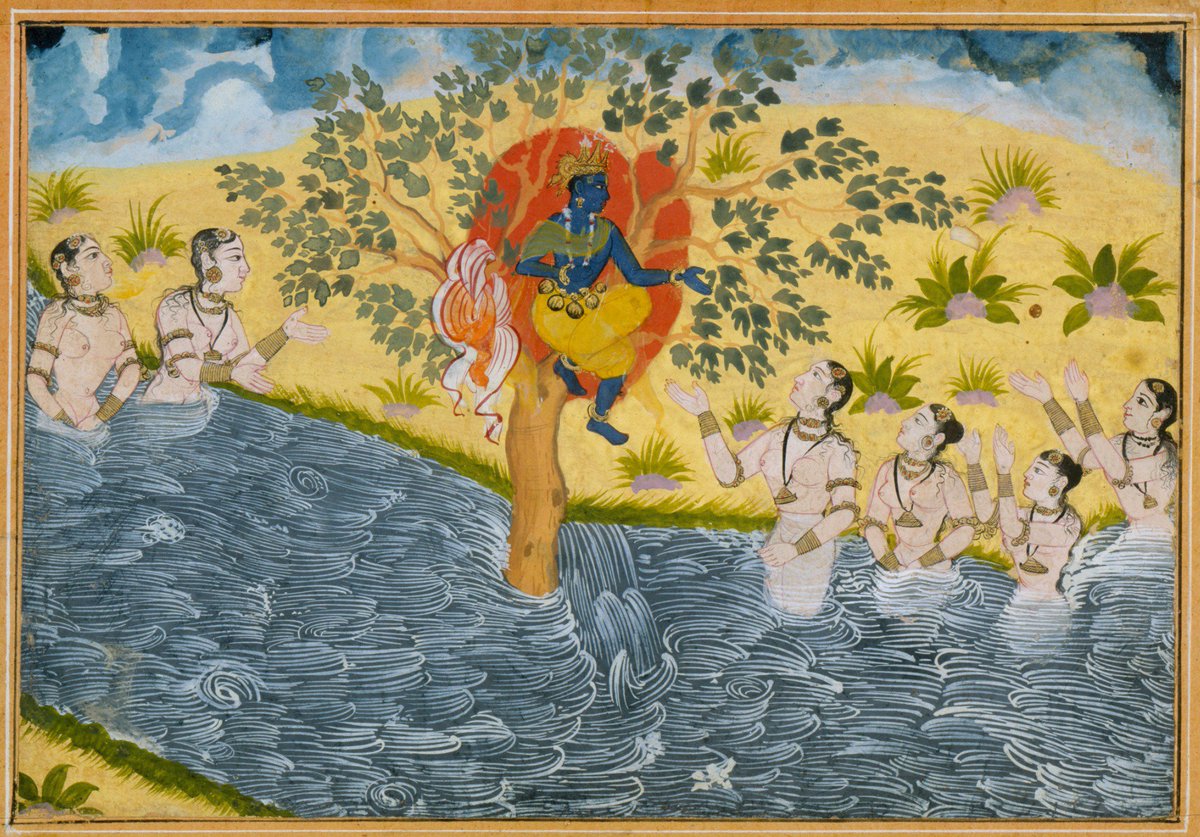
Shishupala is maddened, & the next time he sees Krishna he hurls insult after insult at him, until finally he reaches the 100th insult.
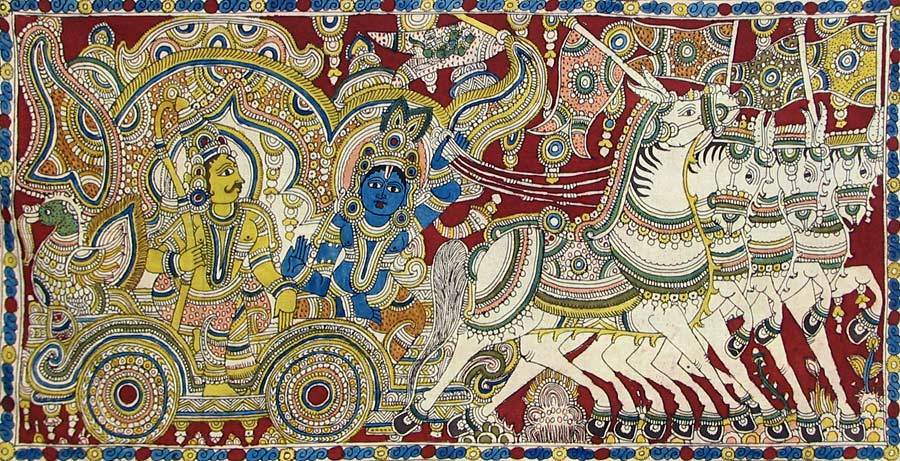
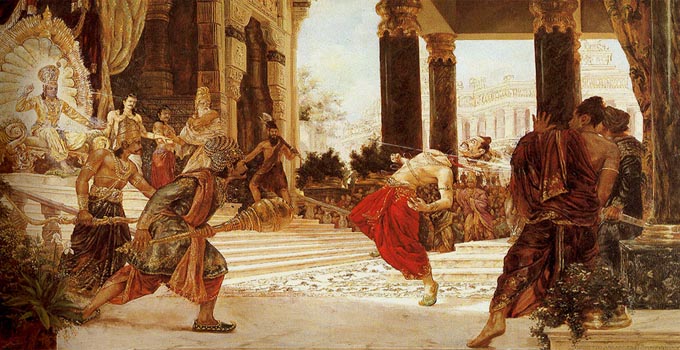
It describes in ornate detail the lives & loves of people living in ancient India.
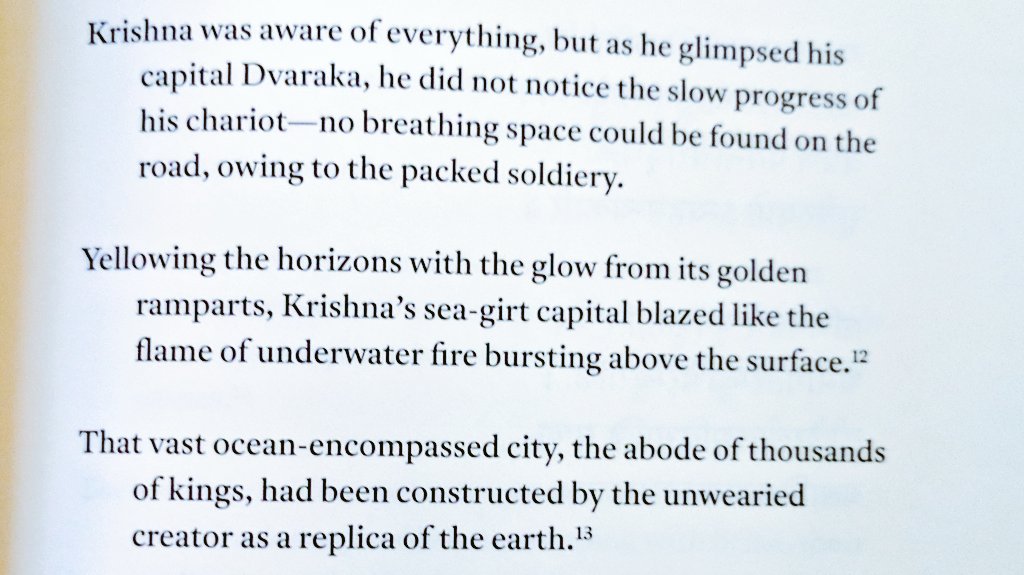
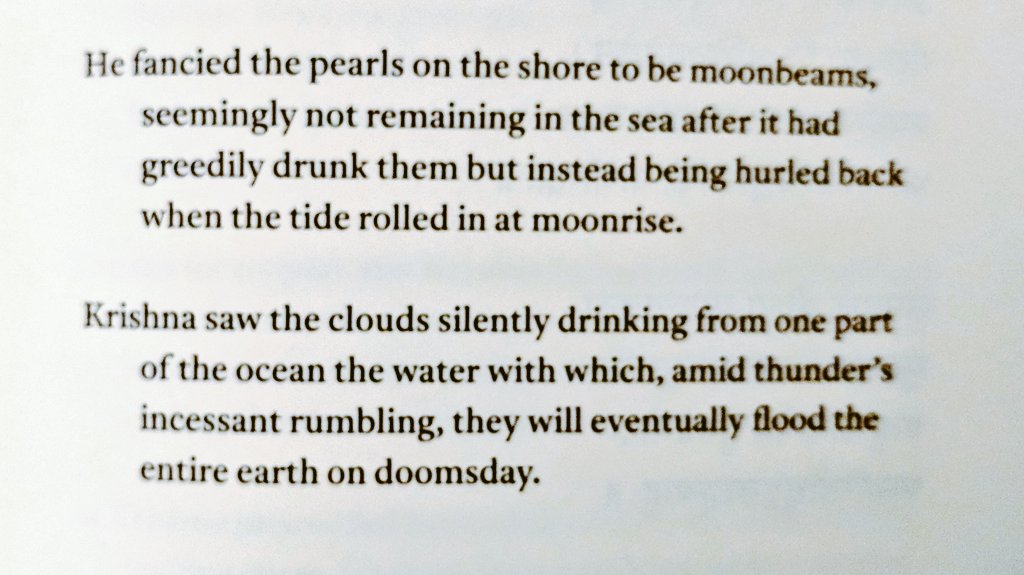
So Krishna's dark skin, for instance, becomes the leaves of a tree.
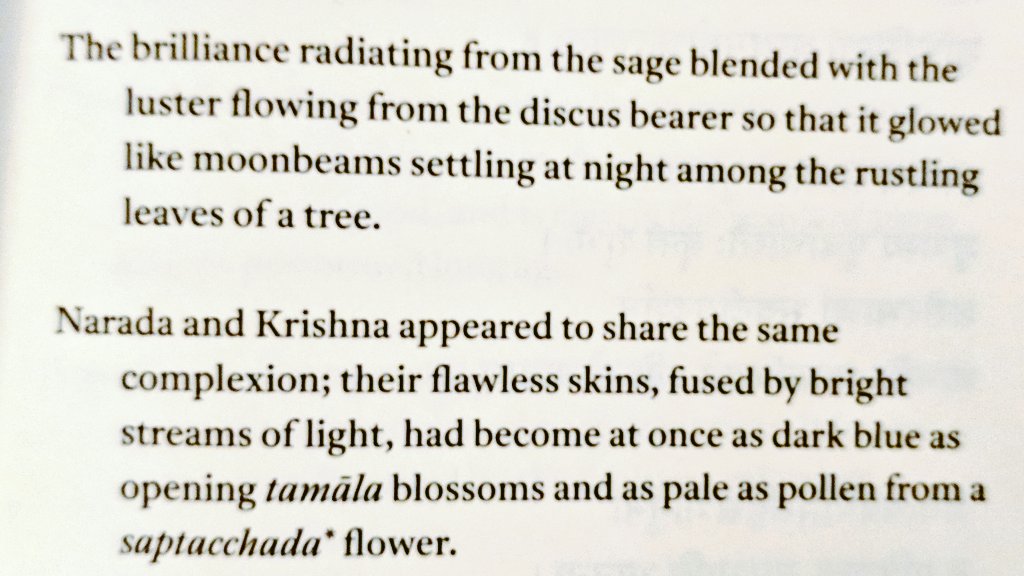
This is a palindrome that can be read back-to-front, both horizontally and vertically.
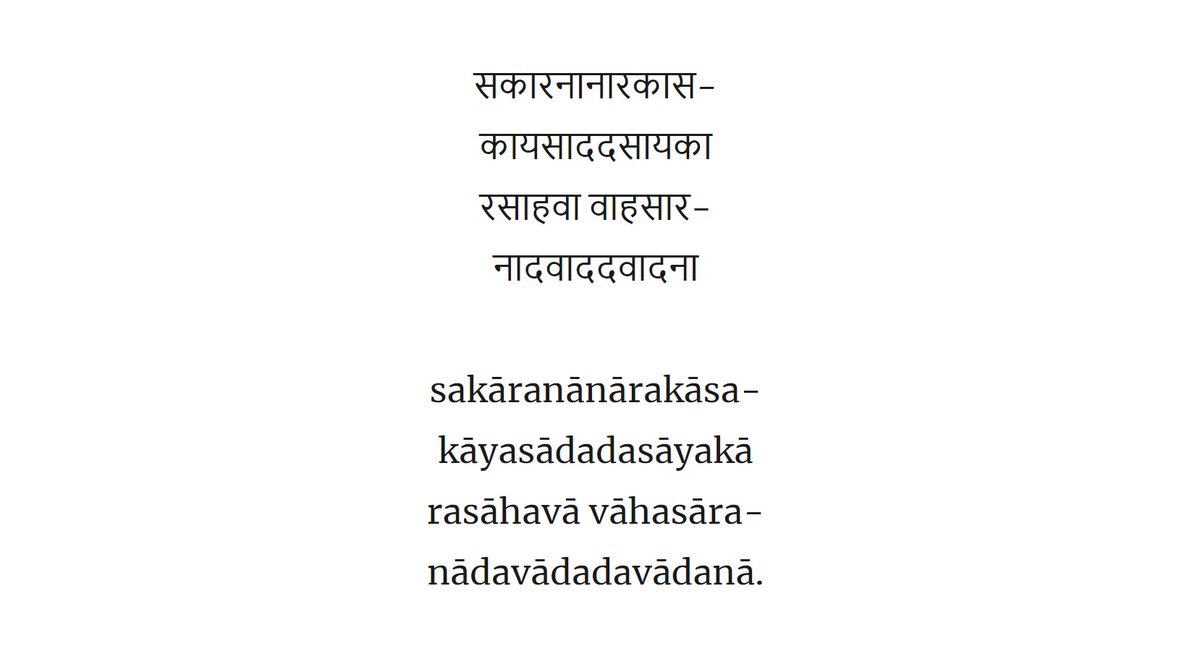
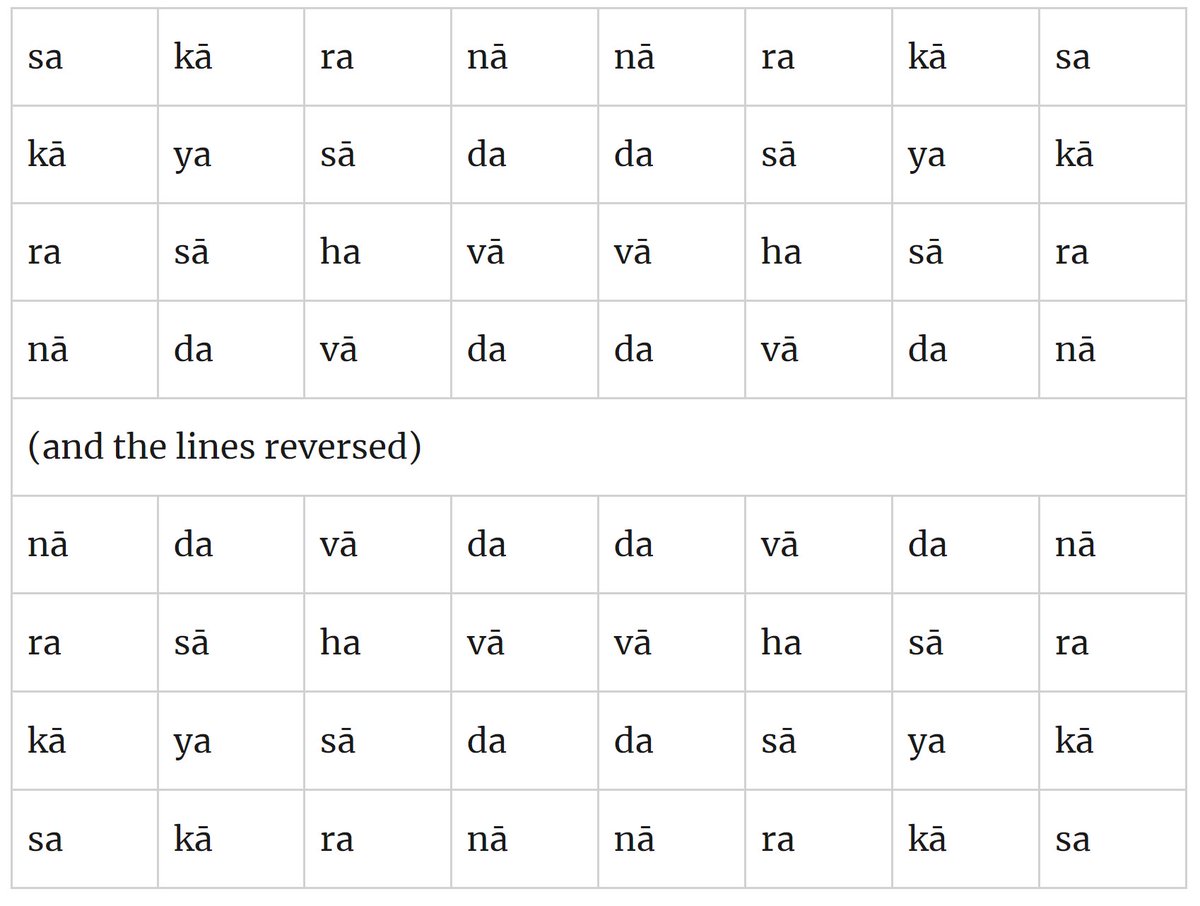
“[That army], which relished battle contained allies who brought low the bodes and gaits of their various striving enemies, and in it the cries of the best of mounts contended with musical instruments.”
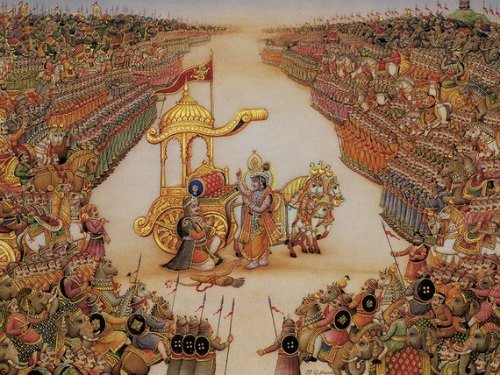
This famous verse, when arranged like a wheel, has the message "This is the Shishupala Vadha, a poem by Magha" hidden in its spokes.
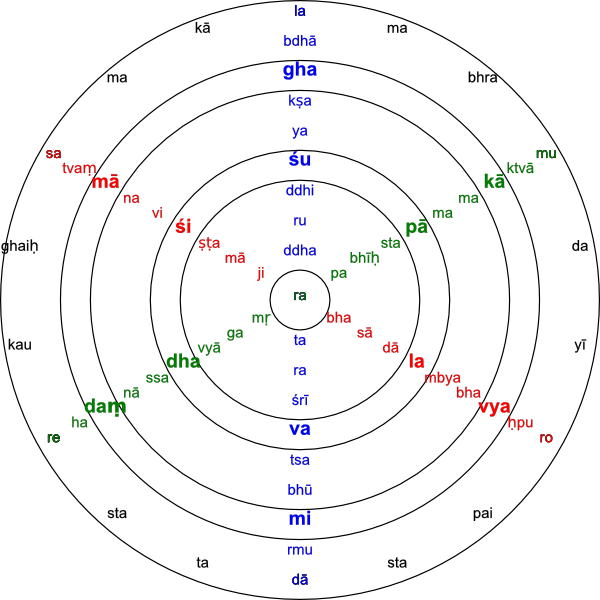
“Sri Krishna, the giver of every boon, the scourge of the evil-minded, the purifier, the one whose arms can annihilate the wicked who cause suffering to others, shot his pain-causing arrow at the enemy.”
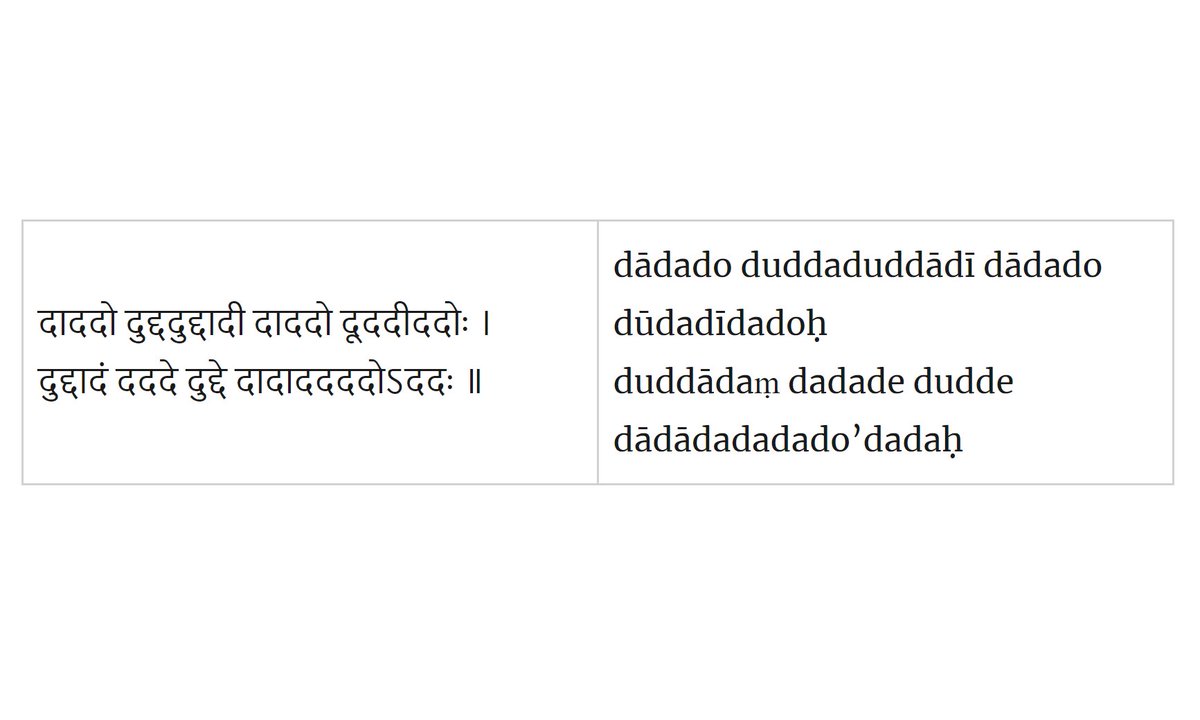
“I am enraged by not having the chance to pay Krishna what he deserves,” Shishupala says.
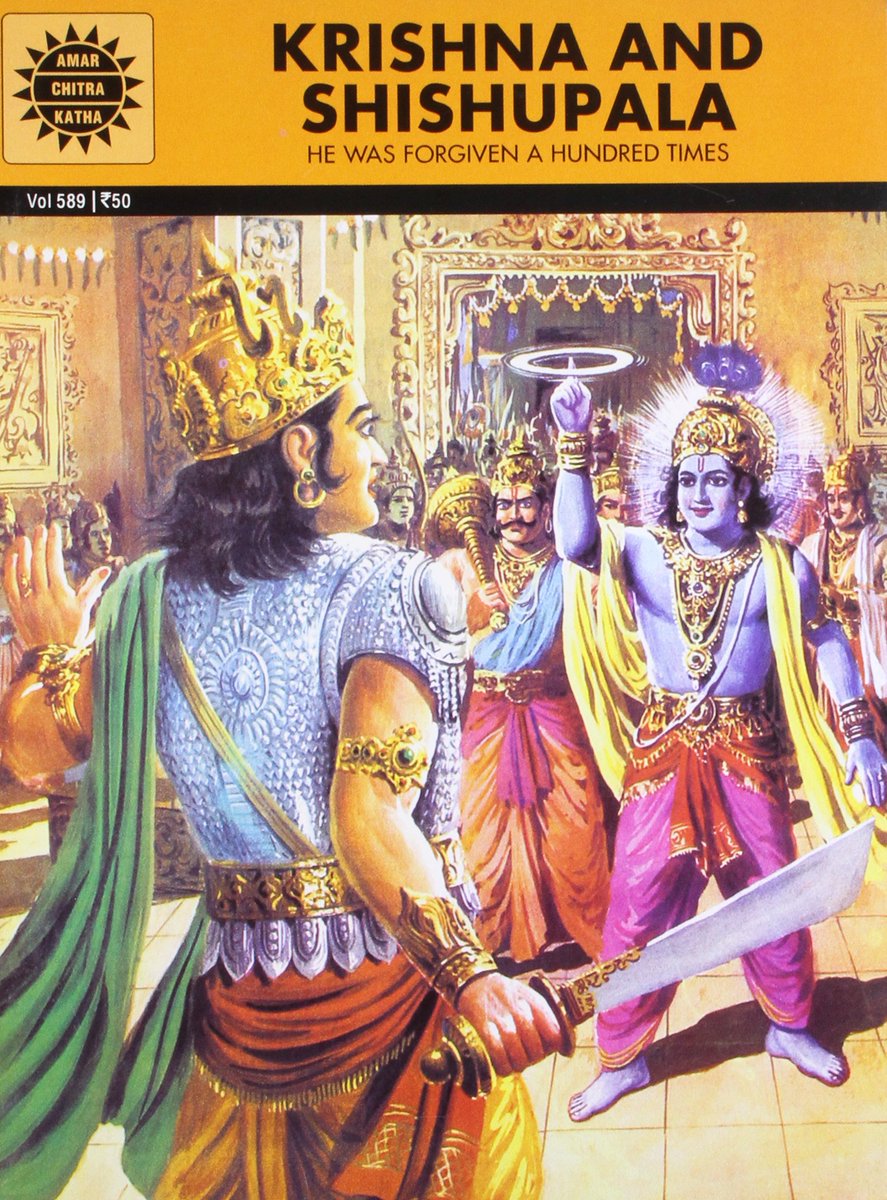
But when I was writing River of Ink, there was no English translation of the Vadha.
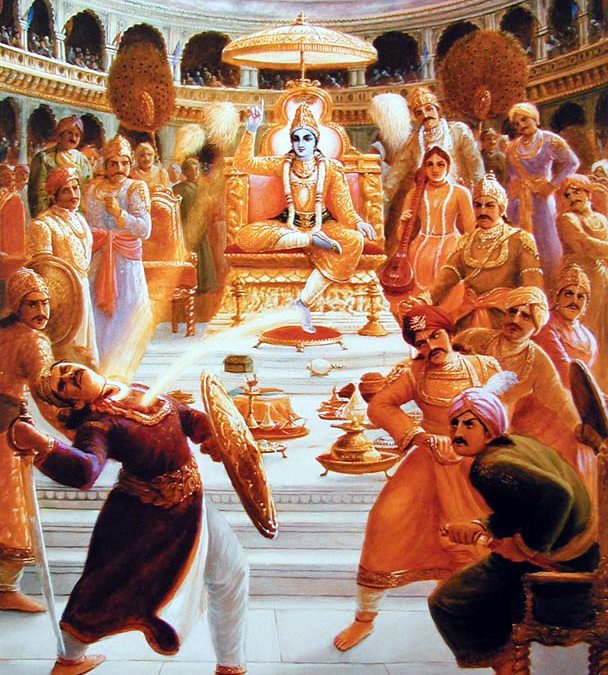
I learned far more vocabulary for the mating cycles of elephants than my high school German teacher had ever prepared me for.
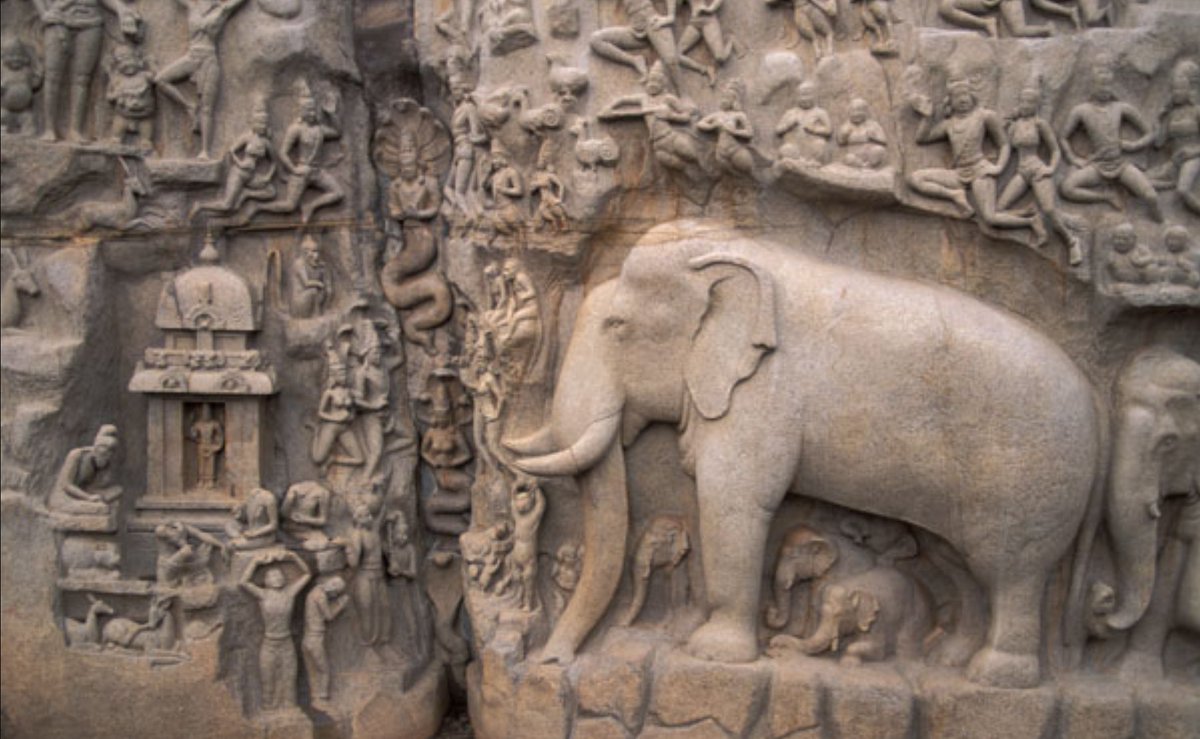
In 2009, he got an email from a young student asking him questions about the Shishupala Vadha, with the ridiculous notion of writing a novel about it.
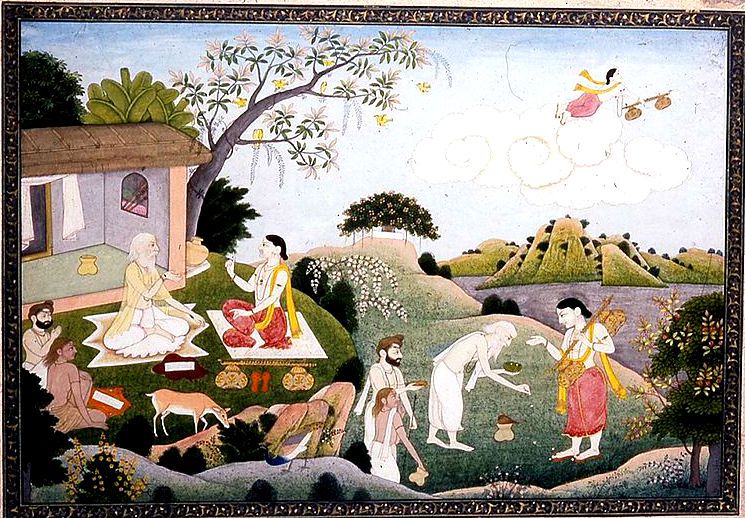
Still, his kindness and willingness to respond to my questions was part of the reason I kept going with the project & made it through those early stages.
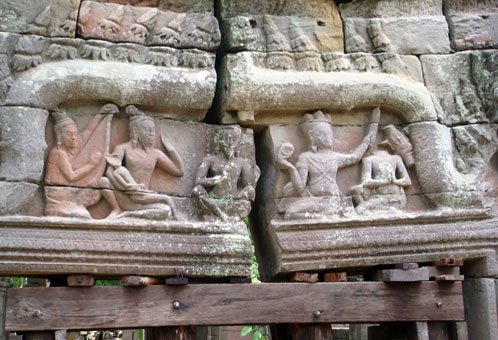
So anyway that is the story of this strange & wonderful ancient poem, & its first appearance in the English language. Be sure to check out its marvels for yourself!
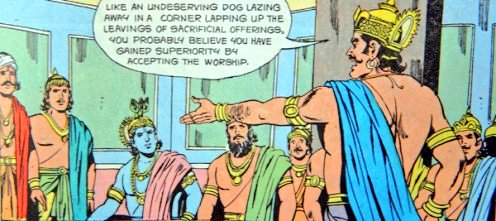
books.google.co.uk/books?id=Tv6ND…

















